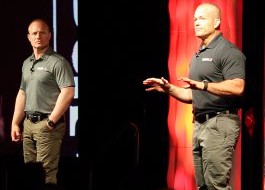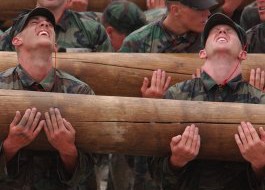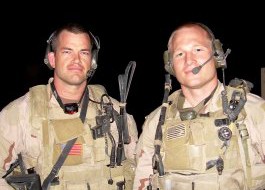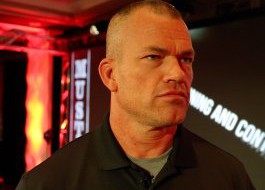
Why is it that the average person thinks of energy like a videogame character?
The implication is: Energy is good, work is bad, and when you work a lot, your energy goes down. It’s a belief we hold so tightly, it’s become an invisible script.
I was reminded of this recently when I was hanging out with two friends talking about how we were raised. One of them said something fascinating:
“I mean, I want my kids to work hard, but if they don’t want to study, I’m not going to scream at them.”
Interesting!!!
Three things I noticed:
Why is it that the opposite of working hard is yelling at kids? Isn’t there a middle ground? OF COURSE KIDS DON’T WANT TO STUDY! THEY’RE KIDS! They want to play and eat candy. That doesn’t mean that’s good for them. The idea that work is good, but “we shouldn’t work them too hard.” There’s this idea going around that “my kid has too much homework.” LOL. Try saying that to my parents (or any Indian parents) and see what their reaction is.At the core of this belief — the idea that kids shouldn’t work too hard, or that “too much work” is bad — is the invisible script that work = less energy.
That we need a burst of “motivation” or a vacation to get that energy back.
But what if there was a way to rethink that? What if the more you worked on something, the more energetic and motivated you got?
In short, what if your life was more like this?
 GrowthLab
GrowthLab
This is a different way of thinking about energy and hard work. And it involves reframing the way you look at hard work.
Look, I’m not saying all burnout can be willed away. Burnout can be a serious medical issue. I’m talking about the stress we impose on OURSELVES.
It’s what best-selling author Carol Dweck calls a “Growth Mindset” in this TED talk: the idea that hard work isn’t a roadblock, it’s a stepping stone to getting better. And I’ve seen the same pattern with top performers (and all of my Indian friends). For them, work isn’t something to finish as quickly as possible. No. Work FUELS them.
Here’s what Navy SEAL Jack Walston said about building this kind of mental toughness in a recent interview:
“Once you can convince yourself that the harder or more miserable or crazier something becomes, the stronger I get, that no matter what happens, I’m getting stronger. Not weaker. There’s just a handful of people that can do that.”
I LOVE IT.
There’s a reason top performers are rare. They take responsibility for the success of a project — including things they can control and things they can’t control. It’s all on them.
“You can’t buy it. It doesn’t come in a can. It’s all on your shoulders.”
What kind of freak wants that responsibility?
It turns out that top performers are usually a little… weird. Every top performer I know has their own idiosyncrasies that they’ve embraced. Maybe they have a morning routine that seems weird to others, but they don’t care. Whatever it takes to succeed.
They don’t fight against the way their brain is wired — they build their lives around it. They play offense, not defense.
For example, look at all the different approaches here:
Cal Newport shuts off all social media andcommits himself to long stretches of “deep work.” Tim Ferriss does all of his writing at nightwith a TV quietly playing in the background. AJ Jacobs writes while walking on a treadmill,so he doesn’t get too sedentary. I know I need ~90 minutes of time in the morning to wake up and get going, so I set my schedule accordingly.They just shrug and say, “I know, it’s weird, but I absolutely hate packing my own suitcase, so I hire someone to do it for me.” Or “I need to have 90 minutes of quiet time before I start my day, so I wake up early.” Whatever it takes, they rearrange their life to give themselves every advantage for top performance.
Burned out and bedridden for a week
I know what burnout feels like.
After our first Earn1K launch, I was so burned out that I couldn’t get out of bed for an entire week. It took me six months to get back to being 100%. I’d worked every day from 6am to 2am, writing a 5-week launch funnel, getting hooked on coffee, and feeling every emotional swing you can imagine.
At the time, I thought this was NORMAL. I was the person in the first image at the top, right? The one that felt more drained every time I had to do my job. I bought into the story that more work required me to be more tired and that burnout was normal, or even expected.
So how’d I change? I followed the same script top performers do. First, I reframed hard work.
I knew three things:
I loved doing launches. I loved the work, the camaraderie, the fact that we put it all on the line. I loved the work. I was going to keep doing launches and I couldn’t keep getting burned out like this. There had to be another way. I was willing to compromise on other small areas of life to have a successful launch.Just acknowledging these three things changed everything. I didn’t try to avoid launches. I loved the work. But I knew it was possible to do the hard work and avoid burnout.
To do this, I built an automation system around my idiosyncrasies around my personal health:
I paid a personal trainer that would hold me accountable and make sure I progressed in the gym… …who sends my workout results to a nutritionist… …who sends nutrition recommendations for my chefI know this system is expensive (and you can also get 85% of the results with about 10% of the cost). But as they say, “Show me someone’s calendar and spending, and I’ll show you his priorities.”
I embraced rest during launch, knowing this was a marathon. And I made sure to organize my life before launch (seeing friends, pre-signing checks, etc) so I could focus on my work when I needed to. Again, because I knew work itself wasn’t draining me and that I ENJOYED doing it.
And over time, that burnout went way, way down.
The second time we did a major launch, it took me three months to recover (down from six!).
And today — many launches later — I’m usually out in NYC the night a launch closes. That’s how far we’ve come.
If I’d hated launches, or if I believed “more work = burnout,” I would have burned out. No amount of fancy trainers or systems will overcome your deeply held psychological beliefs.
But when I reframed hard work from causing burnout to giving me more energy, it started a snowball effect on how I prioritized, and everything changed.
This is really hard. We have a deep-seated belief that the more we work, the more recovery we need — in America, that comes in the form of vacation, massage, and TV.
Nothing wrong with those — I love all of them.
But I want to challenge you to be mindful of the way you think about hard work. Do you sigh when you wake up? Do you roll your eyes when you sit down at work? When someone says, “How’s work?” how do you respond?
Most importantly, I’ll ask you the question I asked myself: How can you manage your energy like a top performer? How can you reframe the way you think about hard work? And how can you embrace your idiosyncrasies?
Leave a comment on GrowthLab and let me know.
Read the original article on GrowthLab. Copyright 2017. Follow GrowthLab on Twitter.




